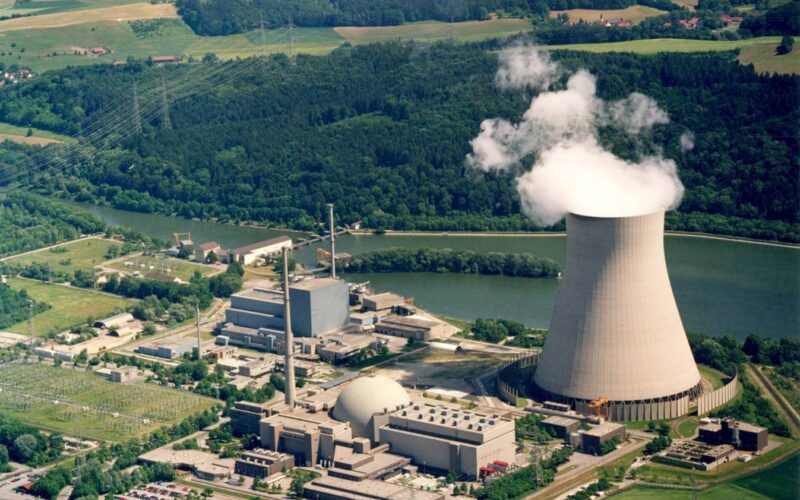
Alan Emerson traces the roots of the soaring energy costs squeezing the primary sector.
The front page of Farmers Weekly of August 19 was of major concern. Under the headline “Energy costs slice into sector yields”, Richard Rennie detailed the crisis affecting the sector.
He quoted Open Country Dairy CEO Mark de Lautour as saying that “dairy processors are unable to continue to absorb the increases coming at them from all key energy suppliers”.
He added that the company was having its hand forced “to spend capital that should be instead spent on the likes of a new cheese plant, which actually adds value”.
What an appalling state of affairs. Our primary industries manufacturing companies are being effectively screwed by venal power companies.
Open Country Dairy isn’t the only company affected by the greed of the electricity organisations.
Two timber mills in the Central North Island have had a 600% power price increase since 2021. How can you justify that?
During the week leading up to August 19 the power price increase was 33%. That was on top of a 50% increase in the spot market a week earlier.
Fonterra has said that it has aired concerns about the lack of energy resilience “for some time”.
Silver Fern Farms (SFF) has seen energy prices double over the previous 12 months and ANZCO is in a similar position.
It all makes me wonder if we are actually a developed nation or rapidly languishing towards developing nation status.
I realise the situation is compounded by the previous government banning oil and gas exploration and the current government canning Lake Onslow, but it is surely an indictment on politicians of all colours that we don’t have a cost-effective and resilient electricity supply system.
For a start it is no use politicians blaming the weather. The generation capacity just isn’t there and all a dry winter has achieved is to compound the problem.
In 2023 60% of electricity was generated from hydro. Why can’t that increase? We let over 90% of our water run out to sea. Why not use it to generate power and, dare I say it, irrigate land to produce additional income for the country?
Then there’s geothermal (18%), and gas at 9%. Courtesy of the previous government, we’re going to have to import gas. Wind sits at 7%.
Next was coal, all 270,000 tonnes of it. That coal-fired pollution is equal to the burps and farts of a whole lot of cows.
Since 2021 wholesale electricity prices have quadrupled.
On top of that we’re being called on to conserve electricity. Why, in a country with the natural resources of New Zealand, would we have to do that? Why don’t we have an efficient and reliable energy system?
We’ve had politicians huffing and puffing, blaming the power companies, so let’s consider that.
The NZ Electricity Authority comes across to me as a toothless organisation. It tells me that we have a “world-leading electricity market”. I have a different view.
Then we have Transpower overseeing the sector for better or worse. Both organisations are government controlled with the government appointing board members.
Following on are the power companies, which we taxpayers used to own but over 2013 and 2014 the Key National government sold off 49% of Genesis Energy and Mighty River Power, now Mercury Energy and Meridian.
The government still has a controlling interest in those companies. The government appoints the directors and can remove them. The government approves the long-term planning and direction of those entities. The government receives the dividends from those organisations.
The cynic in me suggests that power company dividends boosting the governments’ coffers are more important than an energy-efficient productive rural sector or warm housing for all of us.
To me politicians, certainly government ministers, criticising the power companies is, simply, hot air. They have the ability to appoint or remove the directors of the five high-priced energy organisation boards and should do just that.
We had the prime minister telling us the power companies need to make profits to be able to re-invest. There have been a lot of profits but not a lot of new investment.
The harsh reality is that we need to generate more power either by dams, large-scale solar or, dare I suggest it, nuclear power. The alternative is to burn coal.
Last week’s government announcements will help, especially as regards gas, but opening the market up for exploration now won’t achieve much in the short to medium term. In addition, we seem to be lurching into the “hui rather than doey” mentality.
A simple solution would be to close the smelter at Tiwai Point, which uses 12.5% of our electricity.
I’m only humbled that the government saw fit to put the interests of Rio Tinto, which earned a profit of US$43 billion, ahead of local companies like Fonterra, Open Country Dairy, SFF and ANZCO.
You can now read the most important #news on #eDairyNews #Whatsapp channels!!!
🇺🇸 eDairy News INGLÊS: https://whatsapp.com/channel/0029VaKsjzGDTkJyIN6hcP1K

























